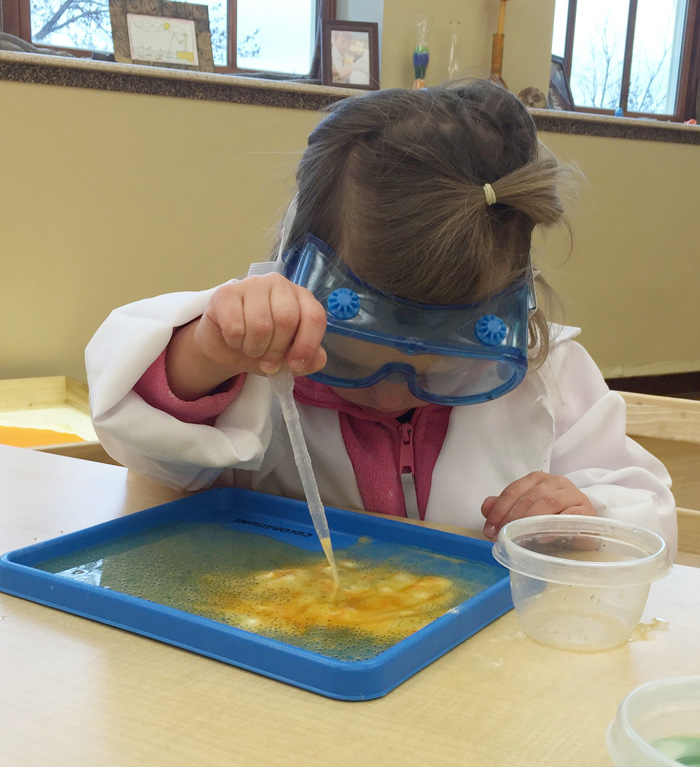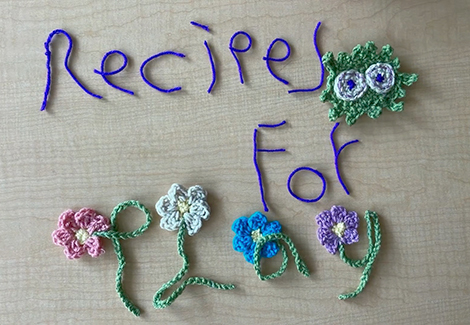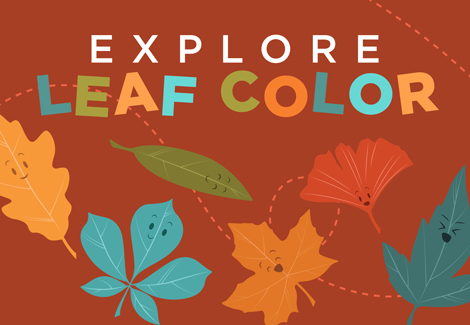Fizzy Bubbles is a simple science experiment combining the excitement of cause and effect with a sensory surprise. This experiment puts a fun twist on the common baking soda and vinegar reaction best known for making volcanoes. By adding a powdered drink mix such as Kool-Aid or Gatorade to the baking soda, as the reaction happens, the bubbles will change color and release an awesome smell. I like to use Cherry Kool-Aid because it creates bright red bubbles and it smells amazing!
Most powdered drink mixes go unnoticed in the baking soda until the reaction happens, making the experience a fun surprise as well as an exercise in cause and effect. The child’s understanding that one event brings about another will stimulate their curiosity leading to greater discoveries and a sense of control over their world. Here’s the recipe:
Fizzy Bubbles
1 c. Baking Soda
1 packet Kool-Aid
Vinegar
Directions:
Add one packet of Kool-Aid to 1 cup baking soda.
Mix well (powder should have little to no color). Add vinegar and watch the colorful bubbles form.
Tips and tricks:
It takes very little powder for this experiment to work, so sprinkle the powder sparingly onto a tray/plate.
Powder will keep for months. If it begins to clump, stir it until smooth again.

Here are a few tips for doing the Fizzy Bubbles experiment with children:
- Use a disposable table covering for easier cleanup.
- Have children wear aprons to protect clothing from stains.
- Mix different drink mixes to create new colors and scents.
- Experiment with other safe to use household acids to compare which causes the powder to bubble the most. Other household acids include: apple cider vinegar, lemon juice, lime juice, orange juice, and tomato juice.
- Prepare a variety of liquids to test the powder. Use some that will react, and some that will not and make a hypothesis about which liquids will create a reaction and which liquids will not.
- Invite the child to ask questions! Their questions may reveal new interests you can pursue together.
- To challenge fine motor skills, try using pipettes or a squirt bottle to apply the vinegar.




